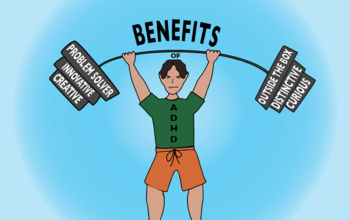By Kate McMahon Centerfold Editor and David Strupp Reporter

In 2012, Colorado and Washington legalized marijuana for recreational purposes, and twenty-three other states, including Connecticut, legalized the use of the drug for medical purposes. With the rising support for the legalization of weed, community opinions vary on this progressively decriminalized drug.
Law Enforcement Perspective
School resource officer Jason Kim has the unique ability to interact with students first-hand. The relationships he has developed has led him to fear the use of marijuana. “A substance like marijuana is still a drug,” he said. “People think, ‘Oh it is nothing,’ but it is still harmful. It has long lasting effects on the human body, especially for kids, and that is what scares me the most since the youth population seems to be using it.”
The fact of the matter is, more and more state laws are leaning towards legalizing recreational use of marijuana. “As a law enforcement officer I will follow whatever the law is; I will enforce the law that is given,” Officer Kim said. “I can’t predict the future, but it is scary because marijuana possession was a felony 20 or 30 years ago, then became a misdemeanor, and now is an infraction. The law is getting less and less strict, giving me less power to tell kids why they should not to use marijuana. I am scared of what it is becoming and I’m not sure if we are prepared to handle it.”
Although Officer Kim’s job is to follow whatever the law tells him, he is personally afraid of the dangerous potential of legalization. “I hope that legalization doesn’t happen,” he said. “I think it is trouble. I think it will cause a lot of problem with DUIs. We have tests for drinking and driving, but what about marijuana? Marijuana stays in your system longer.”
As long as marijuana is illegal, there will be ramifications for those caught using it. “For anyone that is an adult, possession of anything half an ounce and under for personal use is an infraction,” Officer Kim said. “For anyone that is under the age of 18 it is a referral to court, a juvenile summon.”
Despite the government’s increased leniency toward marijuana, Officer Kim is fearful of its social ramifications. “The stress of school, social pressures, and you’re now going to add one more thing that parents and their kids have to deal with.”
Student Perspective
Many students spend their weekday afternoons unwinding from the tiresome day at school by playing sports, participating in clubs or just sitting down on the couch to watch reruns of Breaking Bad. Junior Matthew* chooses to spend his free time relaxing with the use of marijuana. “If I have no homework and it’s a week night, maybe I’ll kick back, toke up and go to bed,” he said. “Then I’ll wake up ready for school the next morning and just get through the day.”
Senior Elizabeth* also enjoys smoking marijuana when she is not busy with school or sports. Unlike Matthew, her purpose is not solely recreational; rather, smoking pot helps Elizabeth overcome her anxiety issues. “I was diagnosed with three different anxiety disorders last year. Smoking weed when I have a panic attack helps me out a lot,” she said. “I am on medication that helps in the long term but for the short term, when I am having a panic attack, smoking completely takes it away and calms me down. If I didn’t smoke, I would have to learn how to get over panic attacks myself which is a lot harder.”
But the effects may vary. According to the article “Medical Marijuana and the Mind” from the April 2010 Harvard Mental Health Letter, “Although many recreational users say that smoking marijuana calms them down, for others it has the opposite effect. In fact, the most commonly reported side effects of smoking marijuana are intense anxiety and panic attacks.”
Despite marijuana’s popularity in NCHS for recreational and medical purposes, much of the school stays away from the illegal substance. “I don’t really have an opinion on it. I don’t care whether or not other people choose to smoke because it is their personal decision,” junior Haley* said. “I’m not opposed to the use of marijuana, but I don’t see myself smoking in the future. Why would I? It just isn’t necessary. You should be able to function without it.”
Like many people, Harry* compared marijuana to the commonly abused drug, alcohol. “When you drink alcohol, you are typically not as sharp, and it impairs your reflexes judgments and. Alcohol affects you for a greater duration and intensity than marijuana; it’s not as suitable for practical use. I would say marijuana has very little detrimental effect to your state of mind.”
Although Harry enjoys smoking from time to time, he recognizes that he has to set limits for himself. “However, it is dependent on the amount you smoke. If you smoke a joint, you can still function and do your homework,” Harry said. “There’s a point with any substance where it’ll mentally impair you.”
According to the article “How does marijuana use affect your brain and body?” by the The National Institute on Drug Abuse, “Marijuana use impairs a person’s ability to form new memories and to shift focus. Therefore, learning, doing complicated tasks, participating in athletics, and driving are also affected.”
Despite these negative effects of marijuana use, many students like junior Zoey* support the legalization of marijuana in Connecticut. “I think it’s okay if it is monitored like alcohol is in that people shouldn’t just have free reign over it,” Zoey said. “I don’t know the exact science of marijuana, but I don’t think it’s an addictive substance or has long term effects on your body any more or less than alcohol does, so there’s no reason it should be illegal while alcohol isn’t.”
While Zoey is in support of legalizing marijuana, she does recognize the downsides of its use. “My friend who smokes is lazy, and doesn’t try at all in school. She is always high, so for her, it’s definitely not a good thing. If you overdo it, you’ll become like that. If you just smoke every once in a while with friends or at a party, the negative effects are minimal.”
Many students, like junior Chrissie,* have taken an interest in the topic of legalization and were able to describe the possible benefits of legalization. “They have shown that in Colorado, the sale of marijuana actually creates a lot of tax revenue for the state, and it leads to a decrease in crime too,” Chrissie said. “Tobacco is a huge industry, marijuana has potential too. By making it illegal, we are combating a huge industry that we could be taking advantage of.”
Senior Johnny* supports legalization as he believes several other drugs have proven to be much more dangerous than weed. “If we are talking about legalization, substances that kill thousands more than marijuana like cigarettes and alcohol should be illegal. I just think that our state, as well as our nation, should have its priorities in order,” he said. “If we keep recreational drugs such as marijuana illegal, then we should also ban cigarettes and alcohol that kill hundreds of thousands more individuals.”
Despite differing opinions on the legalization of marijuana, all students conceded one point: legalization would not dramatically affect the school community. “I don’t think that it would affect the school environment in the slightest, honestly,” Johnny said. “Our school can still put bans on it, they can still prohibit it. It just means that our students will be able to participate in that activity outside of the classroom and maybe it wouldn’t affect them inside the classroom as much as it does now.”
Chrissie also believes that legalization would not affect school environment. “You would definitely have more kids smoking it, but the question is: is that so bad? I don’t think it’s too much of a problem,” she said. “I don’t think kids will drop out of school to pursue their passion of marijuana farming in Colorado.”
Teacher Perspective
Richard Webb is not afraid to voice his opinion on the controversial topic of marijuana legalization. As a history teacher, Mr. Webb has taught his students about the earlier prohibition of a popular drug, alcohol. “Alcohol has always been a problem in American history. Franklin D. Roosevelt comes in 1933 and it is almost instantly abolished. Forty percent of the revenue of the US federal government before prohibition came from alcohol taxation, so prohibition cut off this tremendous revenue for the government,” Mr. Webb said. “What is happening in 1933, is you’re in the fourth year of the most difficult economic time period to that date. So guess what? Re-open the bars, re-open the distributor, it is a stimulus package for the government.”
Mr. Webb proceeded to relate the prohibition of alcohol to the situation the United States is facing now. “The same discussion is going on about marijuana, now if it is legalized it could be taxed. It is interesting to see the 2008 manifestation of that, it does seem coincidental, that we are talking about legalization of marijuana now,” Mr. Webb said. “Prices would drop, you would get legal taxable revenue. The economics of legalizations are pretty indisputable. You could argue that the United States is driven by economic interest.”
Mr. Webb also was able to describe how the prohibition of alcohol affected government spending. “The second reason is law enforcement costs; the government was spending a ton of money persecuting people found with alcohol and the problem is that most people were doing it,” he said.
Not only does the prohibition of marijuana affect law enforcement costs, but also the cooperation between the federal and state governments. “So now at the federal level it is illegal but at the state level obviously Colorado and Washington are taxing it,” he said.
As a teacher, Mr. Webb can see the firsthand effects of marijuana on his students’ work ethic. “I will often see plummeting grades because of you know why…pot. Total demotivation. There is a range in between from daily smokers to the occasional. But again, grades clearly indicate that there is recreational use of student times, which means they are doing something that they shouldn’t.”
Mr. Webb believes that legalization is unavoidable. “If a New Canaan kid thinks something is a problem or something is a good idea, it is. You guys are grad students. You know the truth. You know what the law should be. Again, it is tied to the prohibition of alcohol and for all the same reasons for the prohibition of alcohol. If you don’t redo your history you will remain forever a child, many of these people don’t know their history.



